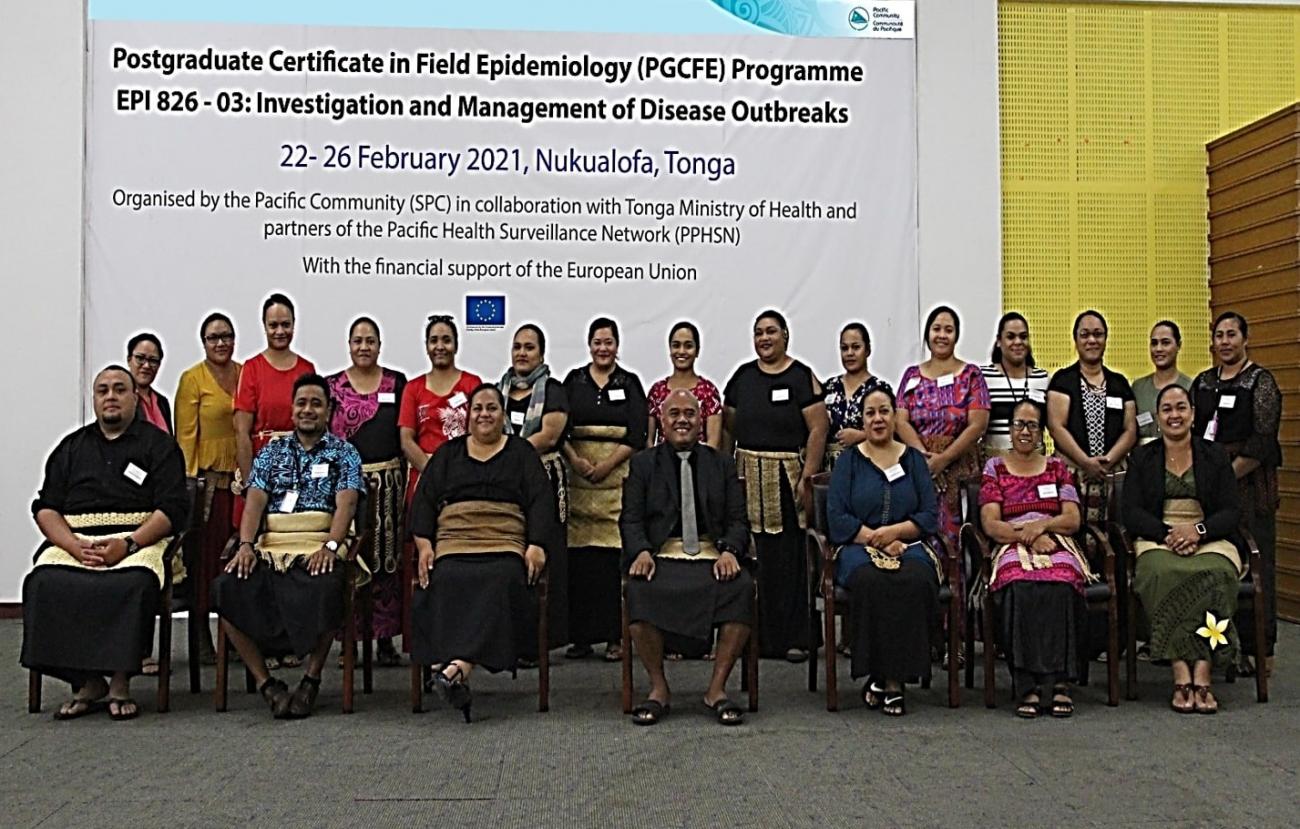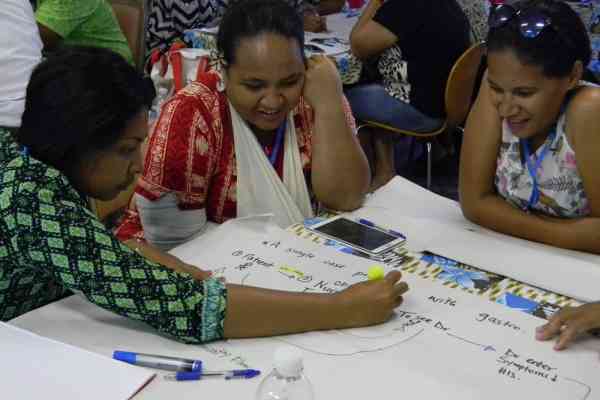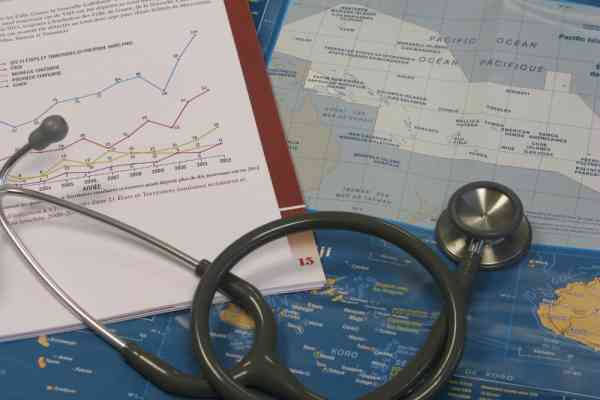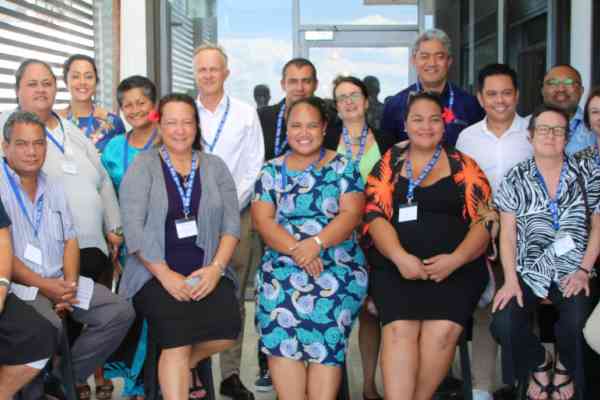Self-assessment of data flow within health ministries across the Pacific has become a priority for the sector in order to combat major health issues such as the NCD crisis.
To boost the capacity of the health workers in the region, the Strengthening Health Interventions in the Pacific - Data for Decision Making (SHIP-DDM) Program, which is one of the six service networks of the Pacific Public Health Surveillance Network (PPHSN), conducted national level trainings across the Pacific.
It builds on the principle ‘from work, at work, for work’ and aims to improve the knowledge and skills of health workers to collect, analyse, interpret, communicate, and use health data, for the purpose of decision-making, and strengthen in-country surveillance systems.
This unique program is a great collaborative work between several PPHSN members, including the Pacific Community (SPC) and the Pacific Island Health Officers Associations (PIHOA).
Since August 2013, 347 health professionals in 15 Pacific Island countries and territories have benefitted from SHIP-DDM courses and mentorship delivered by SPC and other PPHSN members, with financial support from the Agence Française de Développement (AFD), the Australian Department of Foreign Affairs and Trade (DFAT) and the European Union (EU).
In this series, we showcase health workers from the region that have completed the first level of the SHIP-DDM program, Post-graduate Certificate in Field Epidemiology (PGCFE) and implemented system improvement projects.
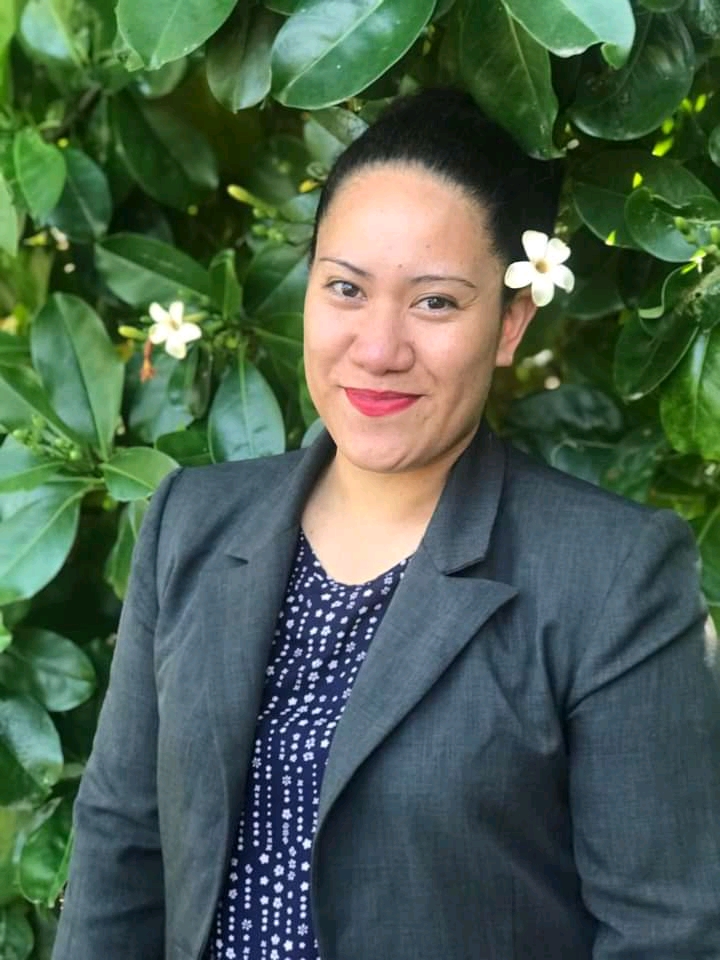 Mele Tinalasa Vunipola works for the Tonga Ministry of Health Public Health Division as the Health Promotion officer. She has worked for the Health Promotion Unit for the past 5 years and successfully completed all modules for the Post Graduate Certificate in Field Epidemiology.
Mele Tinalasa Vunipola works for the Tonga Ministry of Health Public Health Division as the Health Promotion officer. She has worked for the Health Promotion Unit for the past 5 years and successfully completed all modules for the Post Graduate Certificate in Field Epidemiology.
How useful has this program been?
This training has enabled me to conduct self-assessment of the Ministry of Health’s Health Information System and map our ministry’s data flow. I was also able to gain an insightful notion on how our ministry’s information system works and where I fit in and my contribution to the system. I utilized what I learned from the training to revise our data collection tools, improve on our method of data analysis, and successively created a dashboard for NCD risk factors. In addition to this, with my newfound understanding of our information system I then had the ability to build the capacity of my co-worker in data management.
Tell us about your project?
I created a dashboard for our NCD risk factors data to; monitor the trend over time and guide our interventions. Prior to creating this dashboard, our Unit has always been relying on the STEPS survey (which was conducted almost every 5 years or more) for information on the NCD risk factors.
Thus, creating this dashboard, allowed us to have access to current data on the status of NCD risk factors. The dashboard has been incorporated into the Public Health Information System (‘Fanafanaola Project’). Information from this dashboard is being shared with workplaces in Tonga for the purpose of advocating for creation of a healthy policy in workplaces.
Some workplaces have developed action plans based on the information we provide from the dashboard, to improve the health of their workers. Instead of focusing on a single risk factor, they are now able to develop a comprehensive plan addressing two or more risk factors.
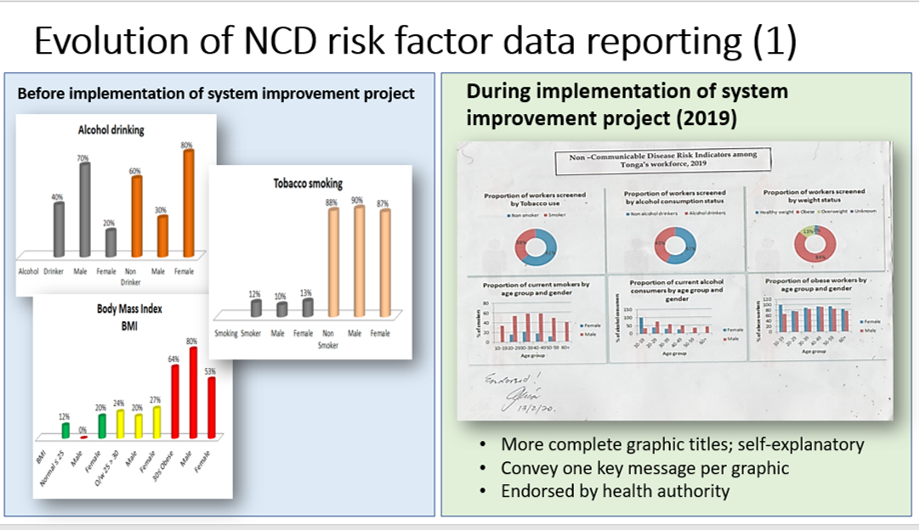
This dashboard has enabled us, the Ministry of Health, to collaborate more closely with other workplaces, through sharing of the same information, and subsequently setting a common goal “To become a health promoting workplace”.
Why do you think programs or capacity building opportunities are important?
Nowadays we are exposed to overwhelming information without the proper knowledge on how to utilize it. The PGCFE program will help people of different levels in the organization’s structure to understand their role in processing information for action. One will learn how to produce quality information at the operational level, communicate the information effectively to the management level, and use the information for action such as creating healthy policy, creating a supportive environment for physical activity at management and national level. The knowledge and skills acquired from this training should become the basic requirement for health workers, to strengthen evidence-based practice thus increase competency of workers.
I believe that producing good quality information that is current, correct, complete and consistent is everyone’s responsibility because that is the basis for decision making to guide our actions.
After the completion of the PGCFE in 2019, Tina became a co-facilitator and mentor for new PGCFE training cohorts that took place this year.
Useful links: Epidemiology training | SPC Public Health Division
Additional information:
SHIP-DDM is a 3-tier capacity development programme, including Postgraduate Certificate in Field Epidemiology (PGCFE), Postgraduate Diploma in Applied Epidemiology, and Masters in applied Epidemiology. All three programmes are accredited by Fiji National University.
